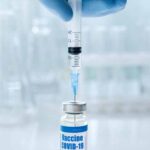The Results
Among the 7,336 patients with IRMD, 272 (3.7%) suffered flares, according to the study. Even fewer patients, 121 (1.6%), had flares that required additional treatment with either new medication or increased dosage of medication prescribed before vaccination.
Key factors associated with decreased odds for flares included:
- Patients of higher age;
- Vaccines other than the brands Pfizer, AstraZeneca and Moderna; and
- Treatment with medications methotrexate and rituximab vs. no anti-rheumatics.
The authors note that the number of other vaccines was small, so the above result related to brands should be interpreted with caution.
“Importantly, we found that higher disease activity and cessation/reduction of anti-rheumatic medications before or after vaccinations were associated with increased probability of flare, both for flares in general as well as for flares requiring starting a new anti-rheumatic medication or change of dose in current medication,” state the authors.
“This finding highlights the importance of IRMD control when considering vaccination,” says Dr. Machado.
Researchers did not find an association between the type of IRMD and the risk of flare after vaccination. “This suggests that other factors, such as level of disease activity and medication, are driving the risk of flare, rather than the specific IRMD,” says Dr. Machado.
Flares were more likely to occur in younger patients and females, but such associations were only seen for flares in general and not those that required starting a new anti-rheumatic medication or dose change in current medication, states the study article.
“Therefore, these associations were less robust,” notes Dr. Machado. “The reasons for an association with female sex are unclear, but could be related [to] hormonal factors, while the association with younger age could be related to a more exuberant immunological response to the vaccine.”
Limitations
The article points out that we have limited knowledge surrounding the use, reduction or discontinuation of anti-rheumatic drugs with respect to the timing of SARS-CoV-2 vaccination.
“These findings will help inform vaccination strategies in patients with IRMDs, specifically decisions regarding stopping or reducing anti-rheumatic medications around the time of vaccination,” states the article.
Dr. Curtis says the results are interesting and notes that although flares were uncommon with less than 5% of patients experiencing a flare, holding medication around the time of the COVID-19 vaccine yielded an increased risk of a flare.
“Given the minimal demonstrated benefit of holding most immunomodulatory medications—except, perhaps, for methotrexate—to boost vaccine response, this finding is helpful to guide recommendations to patients around the time of vaccination,” he says.



